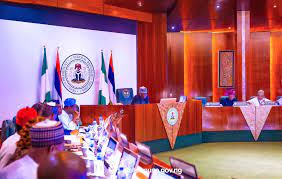The Federal Executive Council (FEC) Monday approved the establishment of a new initiative, MediPool, to reduce the cost of essential medicines and improve access to high-quality pharmaceutical products.
Minister of Health and Coordinating Minister of Social Welfare, Professor Muhammad Ali Pate, said this while briefing State House correspondents at the end of the FEC meeting chaired by President Bola Ahmed Tinubu.
He said MediPool is a core part of the Tinubu administration’s broader push to reform Nigeria’s healthcare value chain and tackle the persistent rise in drug prices.
“Today, Council approved MediPool, a group purchasing organization for competitive pricing and to be a supplier of essential medicines and healthcare products across Nigeria,” he said.
He said. MediPool would operate as a public-private partnership, leveraging the government’s significant purchasing power to negotiate better prices from suppliers.
He said tbd platform would serve through the Basic Health Care Provision Fund and eventually expand to federal tertiary hospitals.
“So it’s using the monopsony power of government as a large buyer of those commodities to negotiate lower prices and then channel those commodities,” he said.
He said the scope of MediPool’s responsibilities includes procurement planning, supply chain and logistics management, quality assurance, regulatory compliance, financial systems and support for local manufacturers.
He said it also includes capacity building and contingency planning to ensure a steady supply of affordable, high-quality drugs.
“This is a major intervention that will shape the domestic market so that the demand for quality pharmaceuticals can be channeled in a way that lowers costs, improves quality, and stimulates local manufacturing,” he said.
He said the council also approved a contract worth N2.3 billion for the procurement and installation of a cardiac catheterization machine at the Usmanu Danfodiyo University Teaching Hospital in Sokoto.
He said the advanced medical equipment would enhance the hospital’s capacity to diagnose and treat complex heart conditions such as heart attacks and irregular heart rhythms.
“The University Hospital in Sokoto will now have this capability, which will serve the population in Sokoto State, the North West geopolitical zone, and indeed the entire country,” he said.
He said the cardiac lab would not only save lives but also help reduce outbound medical tourism by enabling more Nigerians to access critical care at home.
“It is an important step—one more among several other interventions—to strengthen federal teaching hospitals to train and to provide quality services,” he said.

